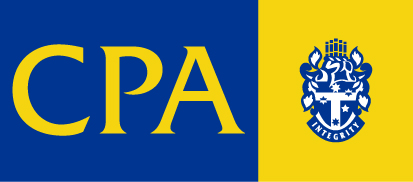5 Common Mistakes to Avoid in Running a SMSF
Rede Accountants Gold Coast, Brisbane & Byron Bay
This article is written by leading SMSF expert Graeme Colley
There are a lot of rules and regulations when it comes to superannuation and running your Self Managed Super Fund (SMSF).
Here are five common mistakes people make and how you can avoid them.
1. Don’t use your SMSF money for personal reasons
A major mistake often made with SMSFs is for members to use their retirement savings for personal or business needs.
People take money from their SMSF accounts and pay personal or business expenses to help themselves or a close friend or relative. Sometimes they’ll do so inadvertently, and in other cases, they don’t realise it’s not allowed.
It’s essential that everyone separates their personal and business bank accounts from their SMSF accounts. Taking money from superannuation before the correct time can result in severe penalties to the fund as well as the member. If an amount is withdrawn in breach of the rules it should be repaid as soon as possible. Frequent breaches may result in being disqualified from running an SMSF and receiving financial penalties.
2. Investments not in the fund’s name
Having investments that belong to the fund in another name can lead to problems and it’s an easy mistake to avoid.
Make sure SMSF investments don’t get mixed up with personal investments. A requirement of superannuation law is that the assets of a fund must be in the name of the individual trustees or the corporate trustee. If this is not possible, supporting documentation that demonstrates the asset belongs to the fund, such as declarations of trust or trustee minutes, should be maintained. If a member becomes bankrupt, investments in the name of the fund are protected from the member’s creditors in most cases. Being well organised will ensure the investments are in the right name.
3. Stick to the investment rules
It is possible for an SMSF to invest in a wide range of investments including term deposits, shares, property and cash.
However, it is essential to make sure the fund obeys the many rules applying to investments.
Most of these rules apply where a person, company or trust has a significant link with the fund. This includes members, trustees, any of their relatives and companies or trusts they control. If the fund makes a loan, invests in or leases assets to a related party, penalties may apply, and the fund could lose its tax concessions.
Any assets or money belonging to the fund must not be used for personal or business purposes unless it is specifically allowed by the superannuation law. For example, it is possible for the fund to lease commercial property to related parties providing it is on a commercial basis and permitted by the fund’s investment strategy. The money in the fund is never to be used as a source of cheap finance and cannot be used for emergencies. Fund investments are for the sole purpose of providing benefits for the member or their dependents for superannuation purposes and not for personal reasons.
Complying with the investment rules requires some planning and monitoring of the SMSF on an ongoing basis. When the values of investments change, or related parties are involved, the trustees need to make sure the fund does not run into trouble with the superannuation investment rules.
4. Ensure you pay at least the minimum pension
Pay at least the minimum amount of pension otherwise, there can be problems for anyone in the retirement phase or receiving a transition to retirement pension.
Failure to pay at least the minimum can mean unnecessary tax in the fund and compliance issues. One of the benefits of superannuation is access to tax concessions so why not maximise that opportunity when it is available.
Strict rules apply to pensions, and income earned on assets that support retirement phase pensions is tax-free. Not maintaining pensions properly may result in the loss of benefits and then paying tax on those earnings within the fund.
Sometimes unexpected errors can occur, resulting in small underpayments of the pension. It is possible to make a catch-up payment to get things back on track and not impact on tax concessions. Prevention is better than cure and arrangements should be made to ensure the minimum amount will be paid automatically before June 30.
5. Store documents
Keeping the documents of the fund is essential for compliance, audit and when the trustees of the fund may be brought to account.
This includes documents such as the trust deed, minutes of meetings and decisions, investment information, membership and trustee acceptances. Loss of any documents may result in an unsatisfactory outcome as disputes may arise between the trustees, members and others making a claim on a fund benefit.
All SMSFs are required to keep some records for at least five years and other records for at least 10 years.
Records that are required to be kept for five years are:
- Accounting records that provide accurate information about the transactions and financial position of the fund
- The annual operating statements and the annual statements of the fund’s financial position
- Copies of all SMSF annual returns lodged with the ATO
- Copies of any other statements lodged with the ATO or provided to other super funds.
Records that are required to be kept for 10 years are:
- Trustee minutes of meetings and decisions on matters affecting the fund
- Records of changes to trustees, and a member’s written consent to be appointed as a trustee
- Trustee declarations recognising the obligations and responsibilities for any trustee, or director of a corporate trustee, appointed after 30 June 2007
- Copies of all reports given to members
- Documented decisions about the storage of collectables and personal use assets.
Graeme Colley is part of the technical services and education team at SuperConcepts – an award-winning provider of SMSF services including administration, software and education.
This article, originally published on superconcepts.com.au, is for general information only and does not consider the circumstances of any individual.
If you have any further questions about superannuation or require any other accounting advice, please contact us here.





